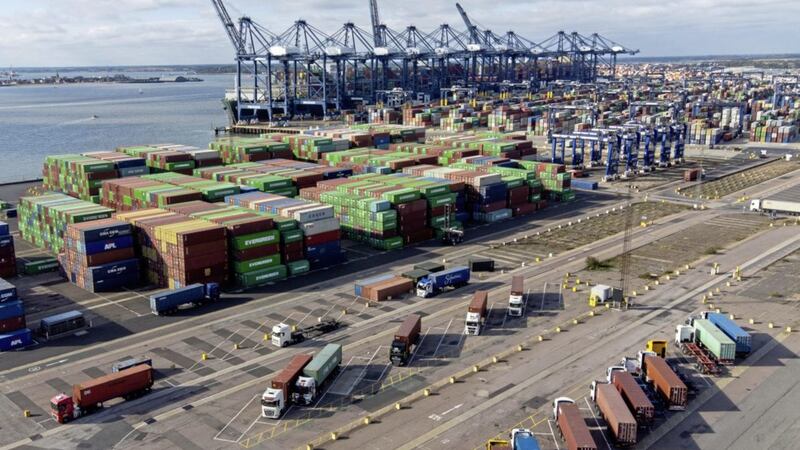INFLATION. It’s a subject I will need to cover over the coming weeks given its potentially devastating impact on society.
Firstly, what is really causing it? Over the last two years I have had many businesses explain how long it is taking to receive items needed to complete their build or car manufacture etc.
Covid-19 slowed Chinese production and while a ‘small bolt’ might not seem to matter, the large product it completes is useless without it. It is of course a testimony to those politicians who sought to end never ending pointless wars set at destabilising economies and global relationships.
As supply shrinks, those who do have access to products are selling less of them, but seek more for the price to keep their businesses afloat. That lends the obvious ‘not thought through’ question – should inflation be measured as the actual price, or the total money being spent on it? What does it matter if a phone is temporarily at £1,000, if only 10 per cent of normal sales are happening?
Either way, the current measure of inflation shows that the supply issues are creating price spikes as the chain simply passes the cost on to the consumer.
Let’s remember this inflation is across the globe – it’s not just here.
A general press narrative is that consumer spending needs to be slowed with a shock tactic - consumers believe rates will soar and their mortgages will rocket, so the rate rise is supposed to take money out of the system and depress demand which depresses prices.
In reality that is pure twaddle when consumer spending is well within the variance of the last 10 years, and, more importantly, has only just nudged over the average during the last quarter. From late 2015 to early 2020 the consumer spending was in excess of the current spend and there was no inflation problem.
So, unlike the ex-treasury minister, and interestingly ex-chief economist at Goldman Sachs, I don’t blame interest rates and I don’t blame consumer spending.
Lord O'Neill believes rates are at a ridiculous level and should be targeted at 4 per cent, a figure that I believe would crush many mortgagees and businesses, given debt levels. Four per cent is well below my memory of my first home with rates in excess of 15 per cent, but my borrowing and most others was tiny in comparison to today’s levels.
Consider this carefully. The global freight container price in July 2019 was $1,342. Now, sit down. In September 2021, it was a mind-blowing $10,839.
You can only fit so much into a container, and everything that is in there has had over a 700 per cent increase in costs – ie 350 per cent per year.
In June last year I covered this subject and mentioned the share price of Maersk and Matson (shipping and containers) was up 164 per cent and 113 per cent for the year respectively. From such high levels, they have risen a further 50 per cent (Matson) 27 per cent (Maersk) and that’s despite the recent significant falls in the stock market.
Meanwhile, as the man on the street struggles to feed their families or keep warm, companies like BP are posting profits of $13billion. Now, read that again.
Lots was promised in COP26 regarding the move away from dirty fuels, but this is a company that received £2.4billion in tax rebates since climate targets were agreed in Paris.
Sit down again. In 2019, it paid an effective rate of tax of minus 54 per cent.
Consider that during Covid-19 many ‘capitalist’ companies became socialists overnight with their hands out like Oliver looking for bailouts.
It would therefore seem logical that those companies are now targeted with windfall taxes to feed the economy and support rebates or energy price caps introduced. I’ll leave the fact that oil and gas and fossil fuel companies have lobbied government with over £1million and you can be as cynical as you like.
More next week on where this can impact us and what you should do to protect yourself.
Peter McGahan is chief executive of independent financial adviser Worldwide Financial Planning, which is authorised and regulated by the Financial Conduct Authority. If you have a financial query call Darren McKeever on 028 6863 2692 or email info@wwfp.net or visit us on wwfp.net.








